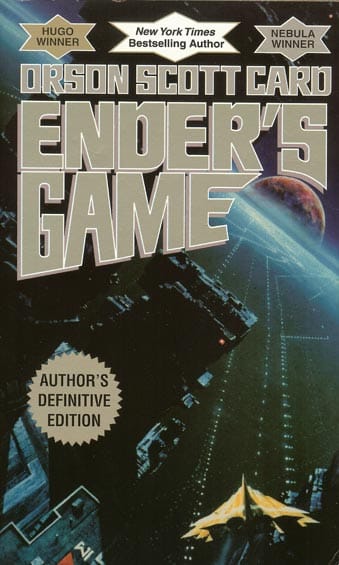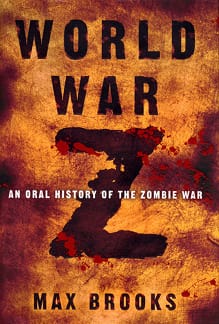
Do not judge the book by it’s hideous 1970’s cover
If ever there were a book for the video gamer and the video game generation, it is Orson Scott Card’s Ender’s Game. I’m almost hesitant to recommend it since the odds are strong you will hear about it somewhere else if you have not already. Some of the high schools nearby are even putting it on summer reading lists; typically the sign of a dry, yet morally wholesome experience. I would also like to point out, straight away, that I am not a staunch opponent of Orson Scott Card’s political opinions or his bigotry toward gays. Despite this apparent three strikes, the book remains an astonishing piece of literature and you should read it.
The writing is tight and the plot moves like a laser from the moment we meet Andrew ‘Ender’ Wiggin, a third child born on an earth where third children have been forbidden for overpopulation reasons, who is drafted to train at a space station referred to as the Battle School. There, prodigious children engage in a number of games intended to groom them into battle commanders capable of defending the earth from the alien threat of the Formics, or Buggers as the kids call them. Skirmishes in the station’s Battle Room- which are essentially full-contact, zero-gravity laser tag matches between armies of kids- constitute the core of the candidates training.
The atmosphere of the Battle School serves as an exaggerated reflection of the current videogaming climate in almost every way. The kids are younger than the average gamer demographic (with the median range being 6 to 16 instead of 12-20 something) and the games are more violent with higher stakes at risk, but ultimately the social construction is still the same: The army groupings are similar to guilds and clans, the battle school teachers (similar to mods) are always one step behind the player’s ‘advanced tactics’ (comparable to exploiting), and the biggest part of becoming a viable player is enduring the community’s hazing ceremonies and learning the game’s culture along with its rules. In addition to speculating about the relationship between military training and gaming, Ender’s Game gives us a brief glimpse at the prospects of using games as an instrument of war, which is both haunting and compelling.
These gaming parallels have not been lost on the marketing powers that be, and a video game based on the Battle Room is apparently already in the works. Whether this game adaptation will escape the vacuum of development hell (where the Ender’s Game movie adaptation has remained stranded for considerable time) has yet to be scene, but it is clear the Card has an open mind when it comes to new media and videogames in particular. In fact, the recently Released Shadow Complex is set in the same world as his novel Empire, which provides a speculative look at a modern day civil war. As I mentioned earlier, Card’s political opinions can be rather acerbic, and his involvement with Shadow Complex has caused quite a stir, though that is another story entirely.
In conclusion, go read Ender’s Game if you haven’t already.





